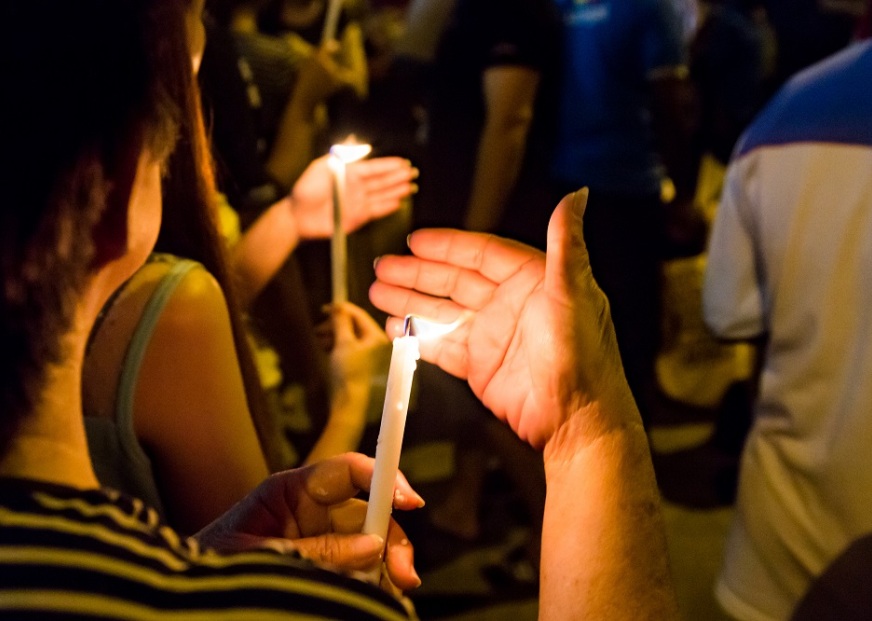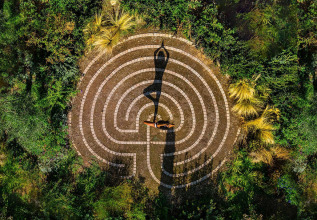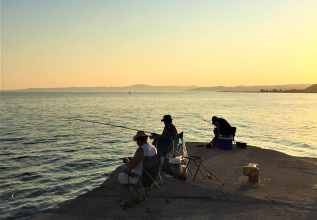Customs During the Greek Orthodox Easter

Easter is a big celebration in Greece as it is connected both with the orthodox faith and Greek tradition. Plan your trip around this time of year in order to experience the special ambiance of these days. But first, let us give you some tips and guide you through some of the most important customs that are practiced on these days.
First of all, it is worth mentioning that unlike many western countries, Greek Orthodox churches base their Easter date on the Julian calendar. Therefore the Greek Orthodox Easter period often occurs later than the Catholic Easter that falls right after March equinox. Moreover, during the Holy Week black and purple pieces of cloth adorn the churches, chandeliers and the icons, as a sign of mourning.
Every day of the Holy Week has its own customs, rituals and symbolisms.
Maundy Thursday’s evening mass is about the crucifiction of Christ and a commemoration of everything that took place before and after that.
Good Friday is a day of mourning. On that day many people avoid household chores. Tradition has it that Christ has descended to Hades on that day, he spoke and converted many of the souls that were held captive, taking them to paradise with him. A ritual, called the “Procession of the Epitaphios of Christ”, takes place in the evening. Before that, the faithful attend church to decorate the Epitaphios (Bier of Christ) with flowers. Later, this symbolic decorated “coffin” is carried through the streets by the faithful as part of the evening service.
 Holy Saturday is filled with anticipation for the midnight mass and the following celebrations. In some areas, people begin to gather in churches by 11pm for the Easter Mass. People carry large white candles and the church bells toll as the priest exclaims “Christ is Risen!”, while fireworks light the sky. Following mass, people return home carrying their candles, lit with the Holy light, they make a cross above their doorstep, which is considered a blessing for the entire year. Then families enjoy the festive Easter meal - the Greek way!
Holy Saturday is filled with anticipation for the midnight mass and the following celebrations. In some areas, people begin to gather in churches by 11pm for the Easter Mass. People carry large white candles and the church bells toll as the priest exclaims “Christ is Risen!”, while fireworks light the sky. Following mass, people return home carrying their candles, lit with the Holy light, they make a cross above their doorstep, which is considered a blessing for the entire year. Then families enjoy the festive Easter meal - the Greek way!
 Easter Sunday. Lambs and kid goats are roasted on a spit and wine is poured in the glasses time and again. People hold a red dyed egg and crack it with their neighbour’s red egg exclaiming “Christ is Risen”! This symbolises the joy for Christ’s Resurrection and new life. Easter Sunday is a time of festivity. Folk music is heard all day long, people eat, chat and dance until late in the evening.
Easter Sunday. Lambs and kid goats are roasted on a spit and wine is poured in the glasses time and again. People hold a red dyed egg and crack it with their neighbour’s red egg exclaiming “Christ is Risen”! This symbolises the joy for Christ’s Resurrection and new life. Easter Sunday is a time of festivity. Folk music is heard all day long, people eat, chat and dance until late in the evening.


